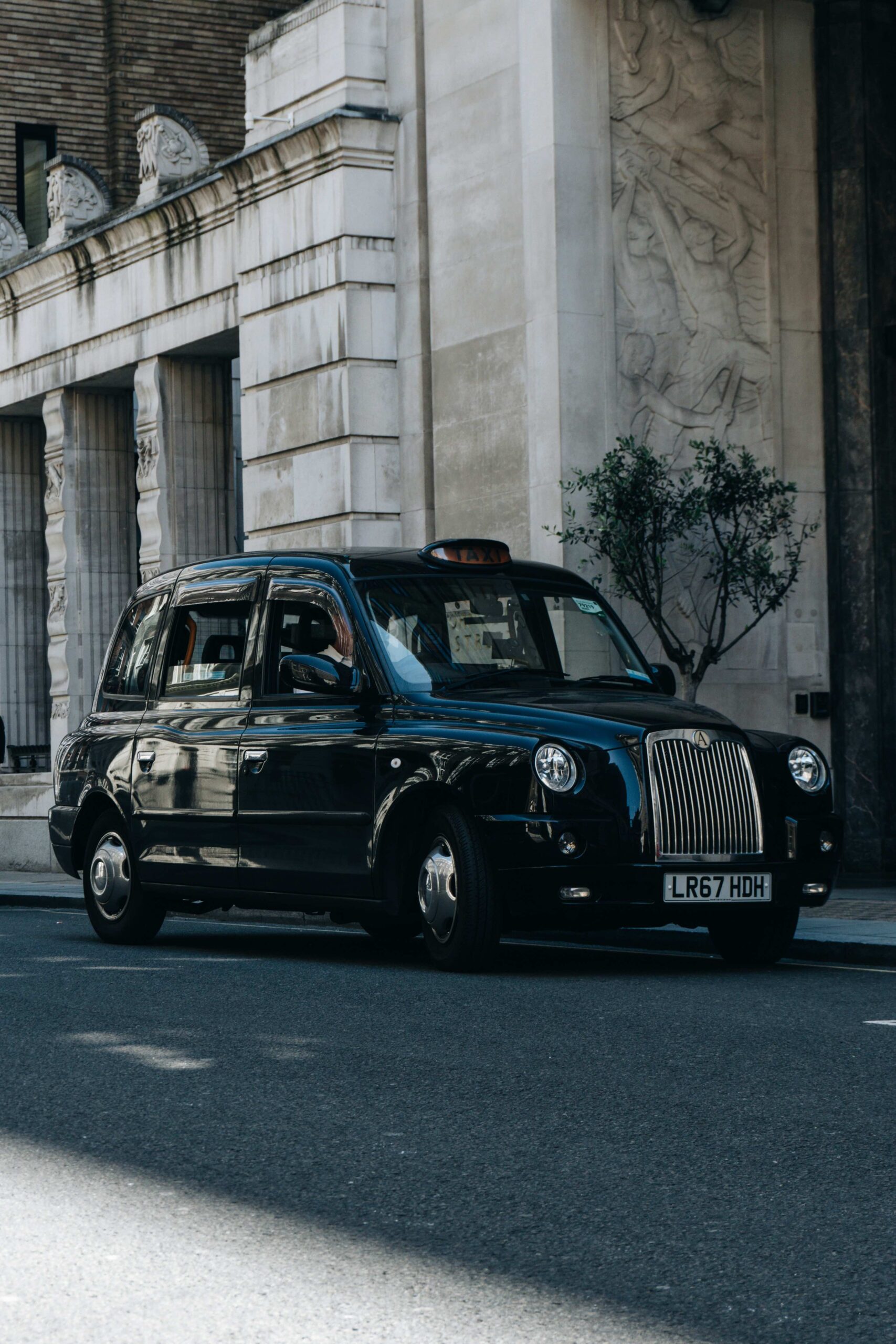Homehealth and wellness, Medical Mysteries, Medical News
Uber v. London Taxis: Only One is Good for Your Brain!
December 24, 2024

Photo by Sam Kimber on Unsplash
No city is perhaps prouder of its taxis than London—alright, New York’s yellow cabs may disagree—with its black automobiles for hire. Still officially called The Hackney Carriage, these were horse-drawn since the 17th century and became petrol-powered in 1903. Never mind that in the spirit of globalisation, it is now wholly owned by Geely, the Chinese corporation because the cabs are still made in Ansty Park near Coventry, England. The late King of Tonga even used the London taxi as his official vehicle. King George Tupou V loved British military uniforms was driven around his tiny island kingdom in a London taxi.
It is the dream of any corporation to become uber-big enough that their name becomes the first thing people think of when one hears the German word for “over” (although means “super”). Uber has had a love-hate relationship with London. In 2019, Uber was banned (again, after previous bans had been successfully appealed and overturned) in London after it was clear that the business was plagued with drivers’ using fake IDs. In fact, it was reported that over 10,000 trips were taken using services provided by such individuals. In 2022, Uber managed to overturn the ban and Uber was granted a two-and-a-half year licence to operate private hire vehicles in London.
London’s taxi service is considered legendary because its drivers are required to memorise thousands of streets and landmarks within a 6 mile radius of Charing Cross. All of them! The so-called “Knowledge of London” was introduced as a requirement for taxi drivers in 1865. It typically takes three or four years before one manages to pass the examination and become an official London cabbie. In contrast, Uber drivers follow the map on their App and do not need any specialised knowledge. Manhattan’s streets are arranged in a user-friendly grid so any tourist or taxi can navigate easily. In Paris, the arrondissements form a spiral around the Seine River. So what’s the point of all this London Knowledge—what one might consider useless information? It may be better for your brain!
A study done of over 8 million people with different occupations found that London cabbies had among the lowest rates of Alzheimer’s disease-related deaths. Taxi drivers and ambulance drivers in London, being occupations involving frequent navigational processing and memorised knowledge of London streets, had the lowest proportions of deaths attributed to Alzheimer’s disease of all occupations. Taxi drivers had the lowest proportion of deaths due to Alzheimer’s disease of all major occupations at around 1%. For the rest of us, including those moonlighting as Uber drivers, it was almost 4% (3.88%)!
I have a special interest in Alzheimer’s Disease because my father, once an eminent surgeon, developed this later on in life. Unfortunately, research into Alzheimer’s Disease got derailed for various reasons, including fraud. So why do London cabbies have lower Alzheimer’s disease rates? Or is it that they simply die earlier of other causes?
Deep down in the brain, on the floor of the lateral ventricles and right next to the medial temporal lobe (that controls memory for facts and events) lies the hippocampus. The name hippocampus has Greek origins (hippos, meaning “horse,” and kampos, meaning “sea monster”) because anatomists felt it resembles a seahorse.
Eleanor Maguire, a neuroscientist from University College, London studied the brain of London taxi drivers. London taxi drivers essentially had more grey matter in their posterior hippocampi than non-taxi driving people of similar age, education and intelligence, Cabbies essentially had chubbier memory centres. Further, studies showed that the longer someone had been driving a taxi, the larger his brain’s seahorse. Studying the London Knowledge ends up a veritable brain gym. The hippocampus grows new neurons, and these neurons make more connections with one another. Non-neuronal cells called glial cells, which help support and protect neurons, may also contribute somewhat to this improvement. Maguire’s team didn’t know how long the effects would take to appear on an MRI scan as they studied new taxi trainees, both successful and unsuccessful. For successful trainees, the MRI showed improvements within the five years it took them to pass the tests and also complete the research study. Interestingly, these cabbies did not do so well at memory to do with visual memory of complex shapes. For example, they would probably not be better than you are reproducing a Picasso or a Gaudi drawing from memory. But it turns out the London Knowledge training process does cause beneficial growth in the brain. And that is a big deal when it comes to lowering your Alzheimer’s disease risk! It turns out that turning off the GPS is not the ignoring of technology it would seem, but the reduction of potential catastrophe. Uber v. London Taxi: the battle is for the shadow and the soul of our remembrances. The latter based on developing deeply focused, street-smart memory elevates your brain to maestro level, perhaps without meaning to.
THE END
IMPORTANT: This blog is about science-communication, education, interesting new science, and medical research to do with (mostly) health and skin. It is not individual one-on-one medical advice. Please do not stop any medications without consulting your own doctor.
Written By
Dr Sharad Paul
Dr Sharad Paul is an award winning, world renowned recognised skin-cancer expert and thought-leader.





